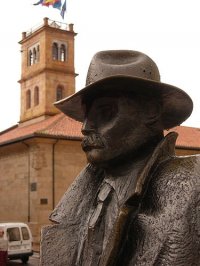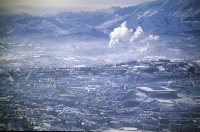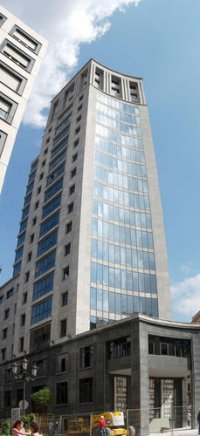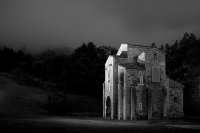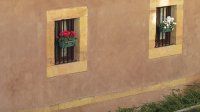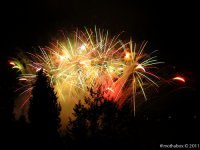Discover Lugones in Spain
Lugones in the region of Asturias with its 14,000 habitants is a town located in Spain - some 233 mi or ( 375 km ) North-West of Madrid , the country's capital .
Local time in Lugones is now 09:51 PM (Thursday) . The local timezone is named " Europe/Madrid " with a UTC offset of 1 hours. Depending on your flexibility, these larger cities might be interesting for you: Porto, Villaviciosa, Silvota, Langreo, and Salamanca. When in this area, you might want to check out Porto . We found some clip posted online . Scroll down to see the most favourite one or select the video collection in the navigation. Are you looking for some initial hints on what might be interesting in Lugones ? We have collected some references on our attractions page.
Videos
Session - Green Fields of Glentown
A clip from a session in Oviedo. Dolfu r. Fdez, Pepín de Muñalén, Stephanie Swanton, Sarah Jones, Borja Vazquez, Alberto Ablanedo. the first tune is The Porthole of the Kelp by Bobby Casey, I think we ..
El Partisanu - Nacho Vegas
Versión n'asturianu a cargo de Nacho Vegas. Guitarra: Mar Álvarez (Pauline en la Playa);Coros: Montse Álvarez (Nosoträsh ); Batería: Roberto Nicieza (Australian Blonde); Hammond: Chus Neira (Groovie D ..
Oviedo, Spain #86 Oviedo Cathedral
davidsbeenhere.com The Oviedo Cathedral in Oviedo was originally built in the 8th century but later finished in 1388. The cathedral is in the Asturias region of northern Spain. The cathedral has an ar ..
TNT2008 closure ceremony: Bagpipe band Ciudad de Oviedo
The 9th Trends in Nanotechnology International Conference (TNT2008) took place in Oviedo (Spain) - Auditorio Principe Felipe - September 01-05, 2008. The conference ended with the performance of the B ..
Videos provided by Youtube are under the copyright of their owners.
Interesting facts about this location
Lugones (Siero)
Lugones is a parish (administrative division) in Siero, a municipality within the province and autonomous community of Asturias, in northern Spain. It is 5.48 km in size, with a population of 11,646. It is situated at 159 m above sea level. The postal code is 33420. Lugones has existed since the time of the Roman Empire.
Located at 43.40 -5.80 (Lat./Long.); Less than 1 km away
San Julián de los Prados
San Julián de los Prados, also known as Santullano, is a Pre-Ramirense church from the beginning of the 9th century in Oviedo, the capital city of the Principality of Asturias, Spain. It is one of the greatest works of Asturian art and was declared an Historical-Artistic Monument by the Spanish Ministry of Culture in June 1917 and a World Heritage Site by UNESCO on the 2nd December 1998.
Located at 43.37 -5.84 (Lat./Long.); Less than 4 km away
San Vicente of Oviedo
San Vicente de Oviedo is a church and monastery in Oviedo, Spain. Founded November 25, 781 AD, by Máximo and Fromestano, the monestery was dedicated to Saint Vincent, a Valencian deacon and martyr. It was the first construction in Oviedo, a city considered to have been founded by Máximo and Fromestano. The church was later transformed into a monastery following the Benedictine Rule, with twenty-six monks. The style of the building is Romanesque, although reworked in the 11th and 12th centuries.
Located at 43.36 -5.84 (Lat./Long.); Less than 5 km away
Santa María del Naranco
The church of St Mary at Mount Naranco (Spanish: Iglesia de Santa María del Naranco; Asturian: Ilesia de Santa María'l Narancu) is a Roman Catholic Asturian pre-Romanesque Asturian architecture church on the slope of Mount Naranco situated 3 kilometres from Oviedo, northern Spain. Ramiro I of Asturias ordered it to be built as a royal palace as part of a larger complex that also incorporated the nearby church of San Miguel de Lillo, 100 meters away. It was completed in 848.
Located at 43.38 -5.87 (Lat./Long.); Less than 5 km away
Archaeological Museum of Asturias
The Archaeological Museum of Asturias is housed in the 16th century Benedictine monastery of Saint Vicente in Oviedo, Asturias, Spain. Its findings include collections of the Asturian Neolithic, Megalithic, Bronze Age, Iron Age, Astur hill fort culture, Roman period, and of the Gothic, Pre-Romanesque and Romanesque periods of the Kingdom of Asturias.
Located at 43.36 -5.84 (Lat./Long.); Less than 5 km away
Pictures
Related Locations
Information of geographic nature is based on public data provided by geonames.org, CIA world facts book, Unesco, DBpedia and wikipedia. Weather is based on NOAA GFS.


